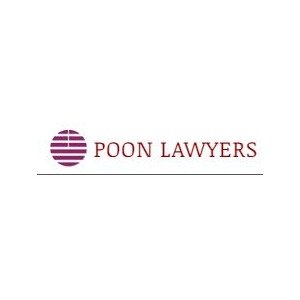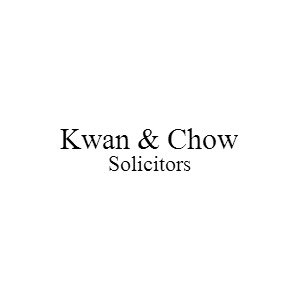Best Bankruptcy & Debt Lawyers in Central
Share your needs with us, get contacted by law firms.
Free. Takes 2 min.
List of the best lawyers in Central, Hong Kong
About Bankruptcy & Debt Law in Central, Hong Kong
Bankruptcy and debt law in Central, Hong Kong, is a critical area of legal practice that governs the financial relations between creditors and debtors. The primary aim of bankruptcy law is to distribute the debtor's assets fairly among creditors while providing a fresh financial start for the debtor. It's a vital part of the financial system, especially in a bustling financial hub like Central, Hong Kong. With a robust legal framework, local laws facilitate both individual and corporate bankruptcy proceedings, ensuring orderly and predictable outcomes in cases of financial distress.
Why You May Need a Lawyer
There are several scenarios where legal assistance is crucial in bankruptcy and debt matters:
1. **Debt Negotiation:** If you are overwhelmed with debt, a lawyer can negotiate with creditors on your behalf to restructure or reduce your obligations.
2. **Bankruptcy Filing:** Understanding which type of bankruptcy to file (e.g., personal or corporate) and navigating the associated procedures can be complex, and legal guidance is invaluable.
3. **Creditor Disputes:** Lawyers can defend against aggressive creditor actions, including harassment or lawsuits, ensuring your rights are protected.
4. **Asset Protection:** Legal advice can help protect your business or personal assets during financial difficulties.
5. **Compliance and Procedures:** Ensuring compliance with local laws and procedural requirements is essential to avoid legal pitfalls during bankruptcy proceedings.
Local Laws Overview
Hong Kong's bankruptcy and debt laws are primarily governed by the Bankruptcy Ordinance and the Companies (Winding Up and Miscellaneous Provisions) Ordinance. Key aspects include:
1. **Bankruptcy Ordinance:** This statute controls the personal insolvency process, detailing the procedures for filing, asset distribution, and discharge conditions for individuals.
2. **Corporate Insolvency:** Businesses undergo liquidation under the Companies Ordinance or restructuring through schemes of arrangement or other statutory remedies.
3. **Debt Collection:** Laws regulate the conduct of debt collectors to prevent unfair practices, safeguarding debtors' rights.
4. **Rehabilitation:** There's a focus on rehabilitation for honest but unfortunate debtors, allowing for discharge from debts post-bankruptcy to facilitate financial recovery.
Frequently Asked Questions
What is the difference between bankruptcy and liquidation?
Bankruptcy usually refers to the insolvency process for individuals, while liquidation is applicable to corporations and entails winding up the company’s affairs and distributing its assets to claimants.
Can I start a new business after bankruptcy in Hong Kong?
After discharge from bankruptcy, individuals can generally start a new business, but they may face certain restrictions and must ensure disclosure as required by the law.
What assets are protected during bankruptcy proceedings?
Certain personal items like basic household goods and tools of trade may be protected, but this can vary based on individual circumstances and legal advice should be sought.
How long does the bankruptcy process take?
The period can vary, but typically an undischarged bankruptcy lasts four years, though it can be shorter or longer depending on specific circumstances.
How can I avoid bankruptcy?
Seeking early legal advice, considering debt restructuring or informal arrangements with creditors, and financial counseling can provide alternatives to bankruptcy.
What happens to my debts after bankruptcy?
Most unsecured debts will be discharged following the completion of bankruptcy proceedings, giving the debtor a fresh start.
Are all debts discharged in bankruptcy?
Not all debts are discharged; for example, court fines, student loans, and certain taxes may still need to be paid.
Can creditors contact me during bankruptcy?
Once bankruptcy has been declared, creditors must stop contacting the debtor and cannot pursue further legal actions against them.
What if I have assets overseas?
Assets are typically considered in the bankruptcy estate regardless of location, and legal advice should be sought to manage overseas assets.
How does bankruptcy affect my credit rating?
Bankruptcy has a significant negative impact on your credit rating, and it will be reflected in your credit report for a number of years post-discharge.
Additional Resources
For those seeking assistance, consider the following resources:
- **Insolvency Service of the Official Receiver's Office:** Offers guidance on bankruptcy and compulsory winding-up procedures.
- **Legal Aid Department:** Provides legal aid services for those qualifying based on financial means.
- **Consumer Council:** Offers advice and resources related to debt management.
Next Steps
If you need legal assistance regarding bankruptcy or debt issues, consider the following steps:
1. **Consultation:** Seek preliminary legal advice from a specialized law firm in Central, Hong Kong, to understand your options and rights.
2. **Documentation:** Gather relevant financial documents, such as income statements, creditors' notices, and asset lists, to aid your legal counsel in assessing your situation.
3. **Consider All Options:** Discuss with your lawyer the feasibility of various approaches, including negotiation, restructuring, or bankruptcy proceedings.
4. **Planning:** Work with legal experts to develop a strategic plan tailored to your financial circumstances and future objectives.
Lawzana helps you find the best lawyers and law firms in Central through a curated and pre-screened list of qualified legal professionals. Our platform offers rankings and detailed profiles of attorneys and law firms, allowing you to compare based on practice areas, including Bankruptcy & Debt, experience, and client feedback.
Each profile includes a description of the firm's areas of practice, client reviews, team members and partners, year of establishment, spoken languages, office locations, contact information, social media presence, and any published articles or resources. Most firms on our platform speak English and are experienced in both local and international legal matters.
Get a quote from top-rated law firms in Central, Hong Kong — quickly, securely, and without unnecessary hassle.
Disclaimer:
The information provided on this page is for general informational purposes only and does not constitute legal advice. While we strive to ensure the accuracy and relevance of the content, legal information may change over time, and interpretations of the law can vary. You should always consult with a qualified legal professional for advice specific to your situation.
We disclaim all liability for actions taken or not taken based on the content of this page. If you believe any information is incorrect or outdated, please contact us, and we will review and update it where appropriate.
Browse bankruptcy & debt law firms by service in Central, Hong Kong
Central, Hong Kong Attorneys in related practice areas.















